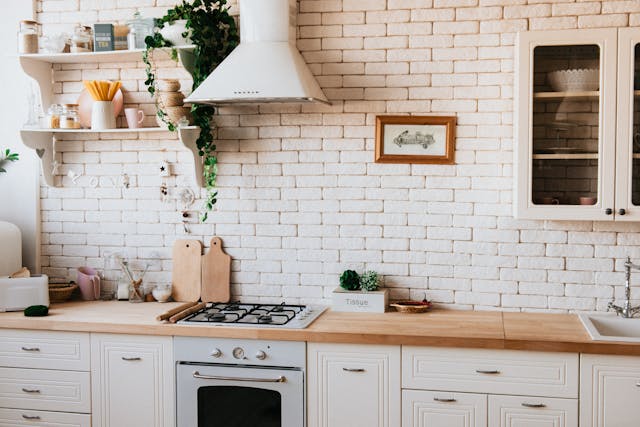In Australia, more than 7.6 million tonnes of food go to waste every year. Much of it ends up in landfills, where it contributes to harmful greenhouse gas emissions. For many people, the kitchen is one of the hardest places to manage sustainably. It’s where convenience often wins, plastic seems unavoidable, and habits can be hard to break.
But creating a more eco-conscious kitchen doesn’t need to be difficult or expensive. It starts with small changes in how you shop, store, and organise your food and kitchen items. The goal isn’t to be perfect—it’s to be more mindful of what enters your home and how it’s used.
This article will walk you through easy ways to stock your kitchen with purpose. You’ll find helpful ideas that support a healthier lifestyle and help reduce your environmental footprint at the same time.
Choose Whole Foods with Less Packaging
When it comes to filling your pantry, whole foods are a great starting point. These include fresh fruits, vegetables, grains, legumes, seeds, and nuts. In many cases, you can find them sold loose or in paper or compostable packaging at farmers markets, co-ops, and bulk stores. Choosing foods with less packaging means fewer plastics end up in your home and eventually in the waste stream.
Try to avoid individually wrapped snacks or heavily processed items that come in layers of non-recyclable material. When you do need to buy packaged items, look for options that use recyclable materials like cardboard or glass. Many local stores also allow you to bring your own containers, which helps reduce unnecessary waste.
A well-stocked kitchen is built around nutritious whole foods. That said, some people also choose to keep health-friendly supplements from brands like USANA Health Sciences to support their already balanced lifestyle.
Buy Local and In Season Where Possible
Buying locally grown and seasonal produce is a simple way to reduce the environmental impact of your food. When produce doesn’t need to travel long distances, fewer resources are used in transport and refrigeration. Plus, food grown closer to home is often fresher by the time it reaches your plate.
Farmers markets are popular across Australia and offer a wide range of fruits and vegetables that reflect what’s in season. Eating seasonally also tends to be more affordable and gives you the chance to try different foods throughout the year. It’s a good way to support local growers and build a more resilient food system.
Swap Out Plastic for Reusable Storage
Single-use plastic is still common in many kitchens, especially for storing leftovers or packing lunches. However, there are plenty of reusable alternatives that work just as well—and last much longer. Glass containers with lids, stainless steel tins, silicone pouches, and beeswax wraps are all useful for everyday storage.
Switching to reusable options can also help keep food fresher for longer. Glass and stainless steel don’t stain or absorb odours, which makes them easy to clean and maintain. You don’t need to replace everything at once. Start with one or two items and build from there based on what you use most.
Bulk Buying Done the Smart Way
Buying in bulk is often linked to sustainable living, and for good reason. It can reduce the amount of packaging used and lower the cost per unit. However, bulk buying only works well if you plan for it. It’s easy to overbuy and let things go unused if you’re not careful.
Stick to pantry staples like oats, rice, pasta, flour, lentils, and dried beans. These have long shelf lives and can be stored easily in airtight jars or containers. Many bulk stores across Australia also offer refill options, where you can bring your own packaging and buy only what you need. This is especially helpful if you’re short on storage space or trying out a new ingredient.
Organise Your Pantry for Less Waste
A tidy pantry helps you see what you have, so you’re less likely to double up or forget things until they expire. Clear containers with labels are helpful for keeping similar items grouped together. Stackable jars save space and let you quickly see what’s running low.
Rotating stock is another good habit to adopt. Place newer items at the back and bring older ones forward, so they’re used first. It also helps to keep a running list of what you need, based on what’s actually getting used. A well-organised pantry can make meal planning easier and cut down on impulse buys that often lead to waste.
Start a Simple Compost System at Home
Composting at home is one of the easiest ways to cut down on food waste. Instead of sending scraps to the landfill, you can turn them into something useful for your garden or indoor plants. Many local councils in Australia offer compost bins or food scrap services, making it easy to get started.
If you prefer to compost at home, look for a system that suits your space. For apartments, a small compost bin or bokashi system can fit under the sink. For houses with outdoor space, a compost tumbler or bin in the yard works well. Stick to raw fruit and veg scraps, coffee grounds, eggshells, and small amounts of cardboard or paper. Avoid meat, dairy, and oily foods. With regular mixing and the right balance of materials, you’ll have usable compost in a matter of weeks.
Plan Ahead to Avoid Food Waste
Planning your meals before you shop helps reduce the chance of food going to waste. You’ll know exactly what ingredients to buy and how to use them. It also saves money and cuts down on unnecessary trips to the store.
Try writing out a short weekly meal plan and checking what you already have at home. This makes it easier to finish what’s in your fridge and pantry before buying more. Keep leftovers in see-through containers so they’re easy to spot. If something’s close to its use-by date, plan to include it in your next meal. Simple planning habits make a big difference over time.
Creating a more sustainable kitchen doesn’t require a full makeover. It starts with the choices you make when shopping, storing, and preparing your food. Choosing whole foods with less packaging, buying local, using reusable containers, and planning your meals all help reduce waste and support a more conscious lifestyle.
You don’t have to do everything at once. Small changes made over time can lead to lasting habits that benefit both your household and the environment. Whether you’re just getting started or looking to fine-tune your routine, these tips offer practical ways to turn your kitchen into a space that reflects your values and supports a more mindful way of living.




